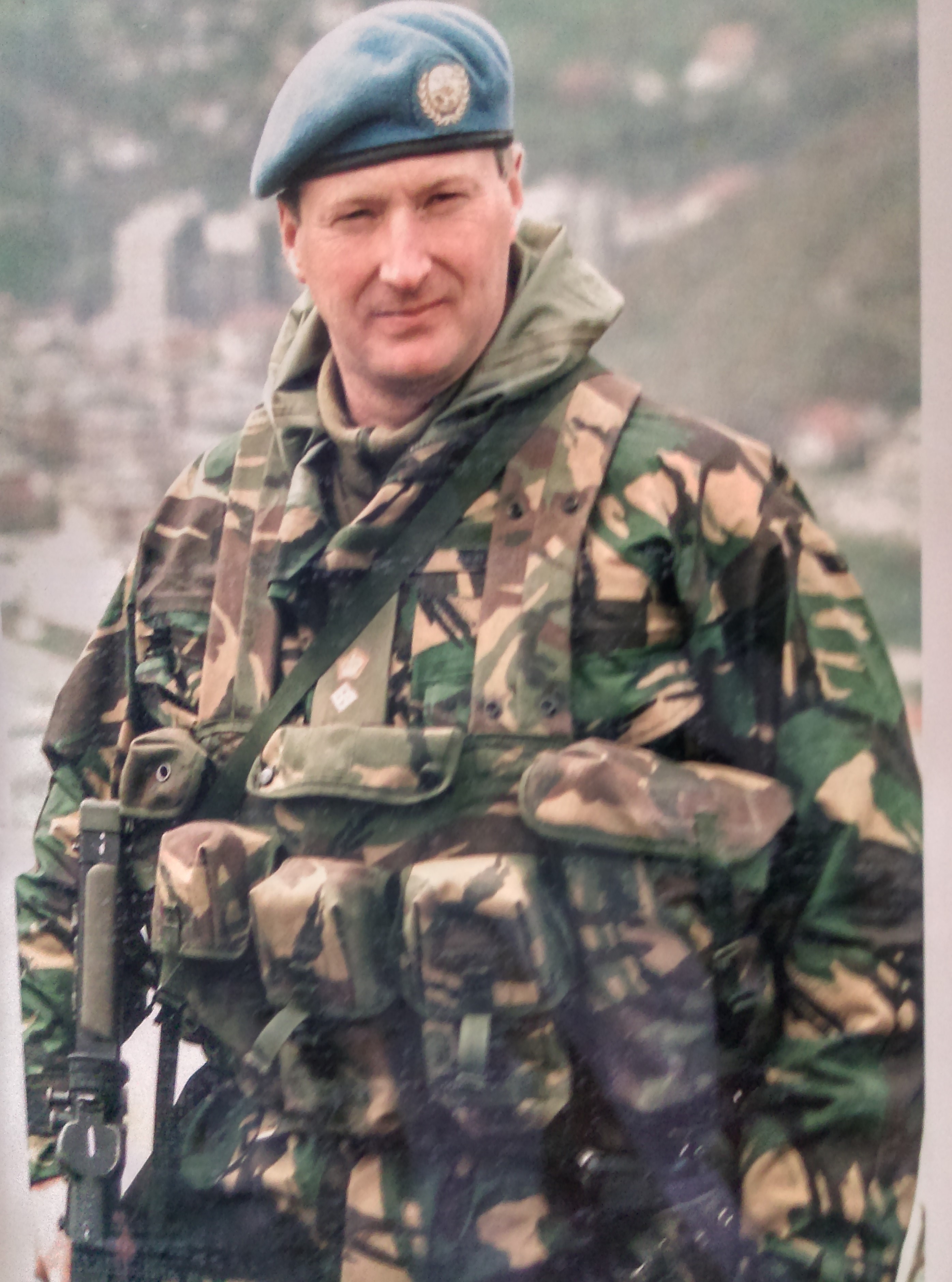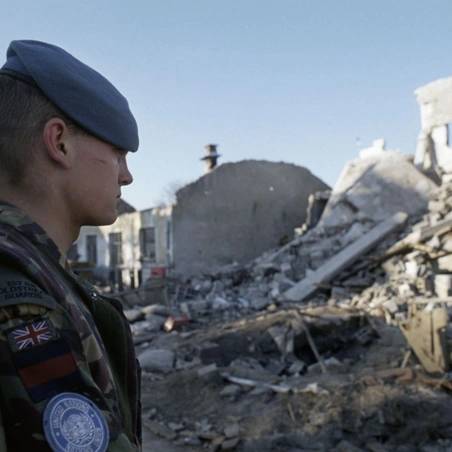Jonathon Riley joined the Army as an officer cadet in 1973. Twenty-two years later he was in Bosnia and in command of the 1st Battalion of the Royal Welch Fusiliers. His battalion had been sent to Bosnia as part of UNPROFOR (United Nations Protection Force) to protect the mostly Bosnian Muslim enclave of Gorazde.
On 1st March 1995 (the regimental day) Jonathon entered Gorazde with two thirds of his battalion. (A later UN assessment calculated that nine battalions were needed to protect Gorazde effectively.) “What I remember above all else was that as soon as you entered the confines of the enclave, this blanket of despair descended on you... that feeling of desperation and fear.”
Living conditions were harsh. Civilians relied on Food Aid and cooking was almost impossible. The only fuel was wood, and “every scrap of burnable timber had been gathered and… was being hauled into the town…”
The UNPROFOR Mission
Having to maintain strict impartiality, UNPROFOR troops were without heavy guns or mortars. Jonathon reflects that Serbian forces “had to stay outside the three-kilometre circle, and we had a chain of observation posts around to observe that.”
The mission “was supposed to be based on the consent of both parties, which is why we were only lightly armed.” That meant the battalion was “always out ranged and outgunned… for the first few months, we fought some sort of engagement… every day. That's because ‘consent’ is a variable… not an absolute. It varies between levels of command, over time, and place.”

The battalion’s bilingual skills were to prove useful. “Radio communications were pretty good, but of course they were all insecure… and we got round that by using the Welsh language.”
The situation was exacerbated by isolation. “Nobody could get to us; we were absolutely on our own. On the other hand, I was in command of a first-class infantry battalion… and very close knit. There were a lot of family connections… and a very strong sense of the regiment and its fighting record, and nobody was going to let that down… the vast majority of the soldiers in 1/RWF were not there for the pay packet. They were warriors.”
Hostilities Escalate
As the Bosnian winter receded, hostilities escalated. In May the UN-approved air strikes began. Before all soldiers in non-essential roles could be brought deeper into Gorazde, a mountain top observation post was attacked and 33 of the Battalion’s soldiers taken as prisoners. “As we found out later, they were dispersed as human shields around various sites…”
However, Jonathon’s confidence that the Serbs would not dare to harm any of them was echoed in a message from the Royal Household. “… we had a message from the Queen that night saying, ‘The Serbs would not dare to harm any of my Royal Welch Fusiliers’, and, as usual, she was dead right!”
Jonathon wrote a letter to every one of the soldiers’ families, saying ‘We are not leaving here till we’ve got those boys back.’ “There was no way the regiment was ever going to abandon them.”
Gorazde’s protection could no longer be guaranteed. During the month of fierce fighting that followed, Jonathon found himself taking a phone call from the then Prime Minister, John Major, while in a bunker under heavy shellfire. “I thought, right, ‘I'll tell him, which way is up’, and I did!”
By late June the situation was calmer. The hostages had been released and Serbian forces turned their attention elsewhere, infamously at Srebenica, where the shocking genocide of 8,000 Bosnian Muslim men and boys took place in July. Later military assessments were that the Royal Fusiliers had prevented a similar massacre at Gorazde.
“Everybody remembers Srebrenica, because of all those people that died. People don't remember Gorazde because it was successful…” reflects Jonathon.

The Battalion Withdraws
The decision was taken to withdraw the battalion from Gorazde by September was hastened following an attack on Sarajevo market on the 28th August, resulting in many civilian casualties. By now, 80 soldiers remained in Gorazde. Jonathon told the UNPROFOR Commander, General Smith, “We can't hang around. We have to leave now.”
Twelve hours after the battalion left, NATO airstrikes started which, combined with the Croatian and Bosnian offensive, led to a ceasefire and the Dayton Agreement.
Jonathon was awarded the DSM (Distinguished Service Medal) for his leadership in Bosnia. He continued to serve in Bosnia until 1999 and retired with the rank of Lieutenant General.
On returning to the UK, the extraordinary service of the Royal Welch Fusiliers was recognised when they were awarded the highest number of medals and commendations since the Korean War.





